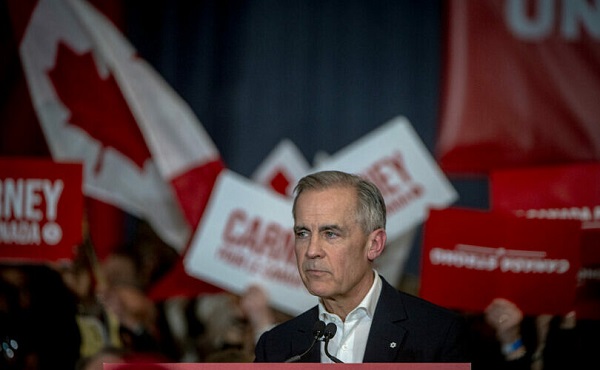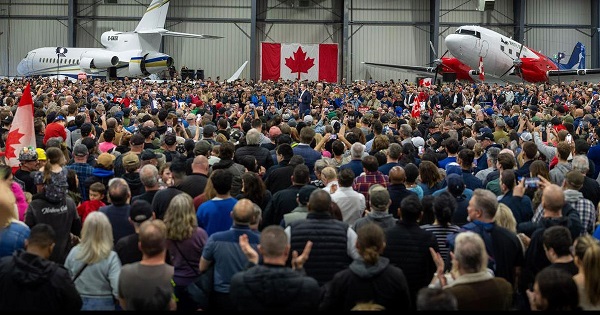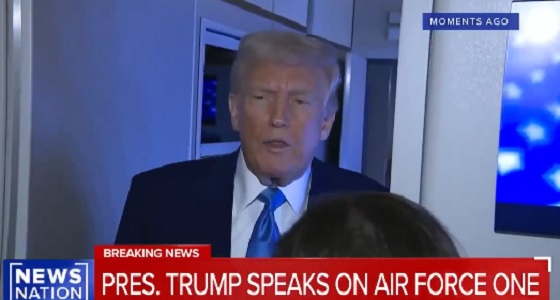Opinion
The question remains; If they do not vote themselves a raise; Who will stay and who will go?

Will the Mayor and our 8 city councillors suffer a perceived salary cut? Every business owner, tradesman and even the Alberta Government employees saw roll backs, cuts and decreased profits. Didn’t then Premier Ralph Klein roll back government employees pay by 5% and frozen for years afterwards?
I say perceived because they are not actually seeing a salary cut but an equalization of taxes, compared to non-politicians. They had the benefit of a 1/3 tax free earnings subsidy which ceases to exist on January 1 2019.
The subsidy was granted to offset personal expenses peculiar to the role of being a politician. Politicians were also given expense accounts to cover the costs of these same personal expenses so the benefit was rather redundant. Some would call this unintentional double-dipping.
Being human they became accustomed to having the extra funds, forgetting the reason for them.
Now they are like the rest of Alberta’s society, who has faced a pay cut, and facing a possible net pay decrease. So the question is; “If they do not vote themselves a raise, who will stay and who will go?”
October 2017 there were 2 candidates for mayor and 29 candidates for city council, how many of them ran for the pay cheque and how many would have withdrawn their nomination papers if they knew that the 1/3 exemption would end in 2019?
I do not believe any one would have withdrew from the campaign and I do not think our mayor or any of our councillors will resign due to this hardship. Do you?
2025 Federal Election
Mark Carney pledges another $150 million for CBC ahead of federal election

From LifeSiteNews
Prime Minister Mark Carney has promised $150 million in additional funding to the Canadian Broadcasting Corporation (CBC) on top of its current $1.4 billion annual government handout.
During an April 4 press conference in Montreal, newly elected and campaigning Prime Minister Mark Carney pledged an additional $150 million in funding to the CBC ahead of the April 28 federal election.
“We will give it the resources it needs to fulfill its renewed mission and ensure that its future is guided by all Canadians and not subject to the whims of a small group of people led by ideology,” Carney said.
“Our plan will safeguard a reliable Canadian public square in a sea of misinformation and disinformation, so we can stay informed and tell our own stories in our own languages,” he continued.
The 150 million taxpayer dollars are in addition to the outlet’s $1.4 billion annual government subsidy.
Following Carney’s announcement, CBC spokesman Eric Wright promised that “during the election period we do not have any comment on the parties’ positions on CBC.”
Notably, the proposed funding increase is being announced just weeks before Canadians head to the polls to elect a new prime minister, leading some to speculate that it is an attempt to encourage the CBC to report favorably on the Liberal Party, especially considering Conservative Party leader Pierre Poilievre has long been campaigning to defund the CBC, often accusing it of having a left-wing bias.
Indeed, there have been multiple instances of the CBC pushing what appears to be ideological content, including the creation of pro-LGBT material for kids, tacitly endorsing the gender mutilation of children, promoting euthanasia, and even seeming to justify the burning of mostly Catholic churches throughout the country.
Accusations that government-funding of the CBC leads to it having a bias were further inflamed last September when then-Liberal House leader Karina Gould directed mainstream media reporters to “scrutinize” Poilievre.
Gould’s comments were in reference to Poilievre’s promise to defund the CBC if elected prime minister.
2025 Federal Election
I don’t believe these polls!

 Dan McTeague
Dan McTeague
Cards on the table, I’m skeptical of the current state of the polling in this election. My sense is that Mark Carney and the Liberals’ numbers are, at least in part, a byproduct of sympathetic pollsters over-sampling their key demographics, and those being trumpeted to high heaven by the publicly-funded media. That, coupled with voters’ justifiable annoyance at Donald Trump’s “51st State” cracks and tariff threats, has contributed to an illusion of enthusiasm, a sense that they are running away with this thing.
That said, one polling data point has struck me as being both real and important. A recent Abacus Data poll showed that, when you cut out all the distractions, Canadians’ biggest concern remains our inflated cost of living. And that is an issue which clearly favors Poilievre and the Conservatives.
That’s because the dire state of our economy can largely be laid at the feet of the Liberals, who’ve been running the show for the past decade. Yes, they’ve made a change at the top, but not much of one. On top of being a globe-trotting member of the “Green” Elite, and champion of environmentalist banking, Mark Carney was a Liberal advisor for years, a key part of the Trudeau “brain trust” — trust me, I use that term loosely — that cooked up a whole raft of economy smothering “Green” policies which have done nothing to reduce global carbon emissions, but have succeeded in lightening our wallets.
Under Trudeau, our annual GDP growth noticeably shifted from the 3% range towards the end of the Harper years to the 1% range more recently. Household debt-to-income ratios rose steadily in the same period, while real household spending per capita dropped 2-3% below 2019 levels by 2024, as costs and interest rates went up. Disposable income growth has been outpaced by inflation and taxes, and bankruptcy filings have risen 40% since just 2019.
Canadian food prices have exploded by 35-40%, with family spending up over 50% over the past decade. Consequently, food insecurity rose to 23% by 2023, from around 8% in 2015, and Food Banks Canada has reported a 78% surge in usage from 2019 to 2023.
Meanwhile, Canada’s national debt, which was just over $600 billion when Justin Trudeau was handed the federal credit card, has roughly doubled, reaching over $1.2 trillion by the time he left. And provincial debt has risen by about $1 trillion in the same period.
It’s a frightening financial snapshot. And many of these negatives can be attributed to the Liberals’ war on oil and gas, which remains — however much Carney might wish otherwise — the backbone of our national economy.
So much of the Liberals’ time and effort in government has been spent kneecapping the resource sector, and for purely ideological reasons. From Bill C-48, the Oil Tanker Moratorium Act of 2019, which significantly reduces our ability to sell oil and gas abroad, to Bill C-69, which added mountains of red tape for infrastructure projects, so much so that it was nicknamed the “No More Pipelines” Act.
You’ll remember that the Supreme Court ruled the “No More Pipelines” act largely unconstitutional two years ago. Even so, Carney recently said he has no intention of repealing it, prompting Poilievre to tweet out, “This Liberal law blocked BILLIONS of dollars of investment in oil & gas projects, pipelines, LNG plants, mines, and so much more,” with an excellent infographic attached, listing the various cancelled energy projects throughout Canada since the Liberals came to power.
And then of course, there’s the Consumer Carbon Tax, which started out at $20 per tonne of CO2 emitted in 2019, small enough that many Canadians barely noticed they were paying it, but increased every year until it hit $80 per tonne.
By that point it became so noticeable and unpopular that the Liberals felt they had no choice but to “cancel” it (“zero it out” is more accurate), before it could reach the $170 by 2030 which they’d planned. Still, it remains on the books, ready to be raised again, without a vote, if Carney so chooses.
Even if he doesn’t, Carney has doubled down on the Industrial Carbon Tax. While the Liberals claim this is an improvement because it isn’t paid by working Canadians, only by big evil “polluters.” Of course, they said something similar about the Consumer Tax, that by some financial wizardry, we regular folks would get back more than we paid in, which turned out to be total bunk.
Meanwhile, the Industrial Tax makes our lives more expensive in essentially the same way as the Consumer Tax. It raises the cost of doing business, of heating our homes, of filling up our car, of our grocery bills. It just does so by a less direct route, by taxing businesses instead of individuals, so that we pay when the price of goods and services goes up in response.
The Industrial Carbon Tax, much like Trudeau’s Clean Fuel Regulations, is ultimately a hidden tax, and that suits Carney just fine. He’d prefer that we not know who to blame as our cost of living skyrockets.
The Liberal Party’s economic record over since 2015 has been atrocious, and it will be no different under Mark Carney. He is complicit, and he continues to support policies which would make us poorer, like Bill S-243, the “Climate-Aligned Finance Act,” which Carney testified before the Senate in support of last year. That bill sought to make it nearly impossible for banks to invest in, or loan money to, oil and gas projects in Canada, and tried to force financial institutions to appoint board members ideologically opposed to fossil fuels.
Canada needs to change course, and soon. As things stand, it will be tough for even a good captain to navigate us through the rough seas the Liberals have steered us into over the past ten years. A few more, and with Mark Carney at the helm, might make that impossible.
Dan McTeague is President of Canadians for Affordable Energy.
Support Dan’s Work to Keep Canadian Energy Affordable!
Canadians for Affordable Energy is run by Dan McTeague, former MP and founder of Gas Wizard. We stand up and fight for more affordable energy.
-

 Courageous Discourse2 days ago
Courageous Discourse2 days agoEurope Had 127,350 Cases of Measles in 2024
-

 Podcasts1 day ago
Podcasts1 day agoTrump’s Tariffs: The US, Canada, and the rest of the world
-

 2025 Federal Election1 day ago
2025 Federal Election1 day agoMark Carney Comes to B.C. and Delivers a Masterclass in Liberal Arrogance
-

 Alberta1 day ago
Alberta1 day agoProvince introducing “Patient-Focused Funding Model” to fund acute care in Alberta
-

 2025 Federal Election1 day ago
2025 Federal Election1 day agoPoilievre to invest in recovery, cut off federal funding for opioids and defund drug dens
-

 Business1 day ago
Business1 day agoTrump threatens additional 50% tariffs on China, urges ‘patience’
-

 Alberta1 day ago
Alberta1 day agoMedical regulator stops short of revoking license of Alberta doctor skeptic of COVID vaccine
-

 Business2 days ago
Business2 days agoTrump says tariffs on China will remain until trade imbalance is corrected





